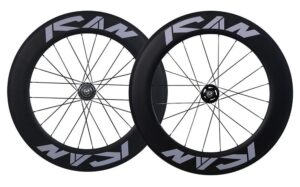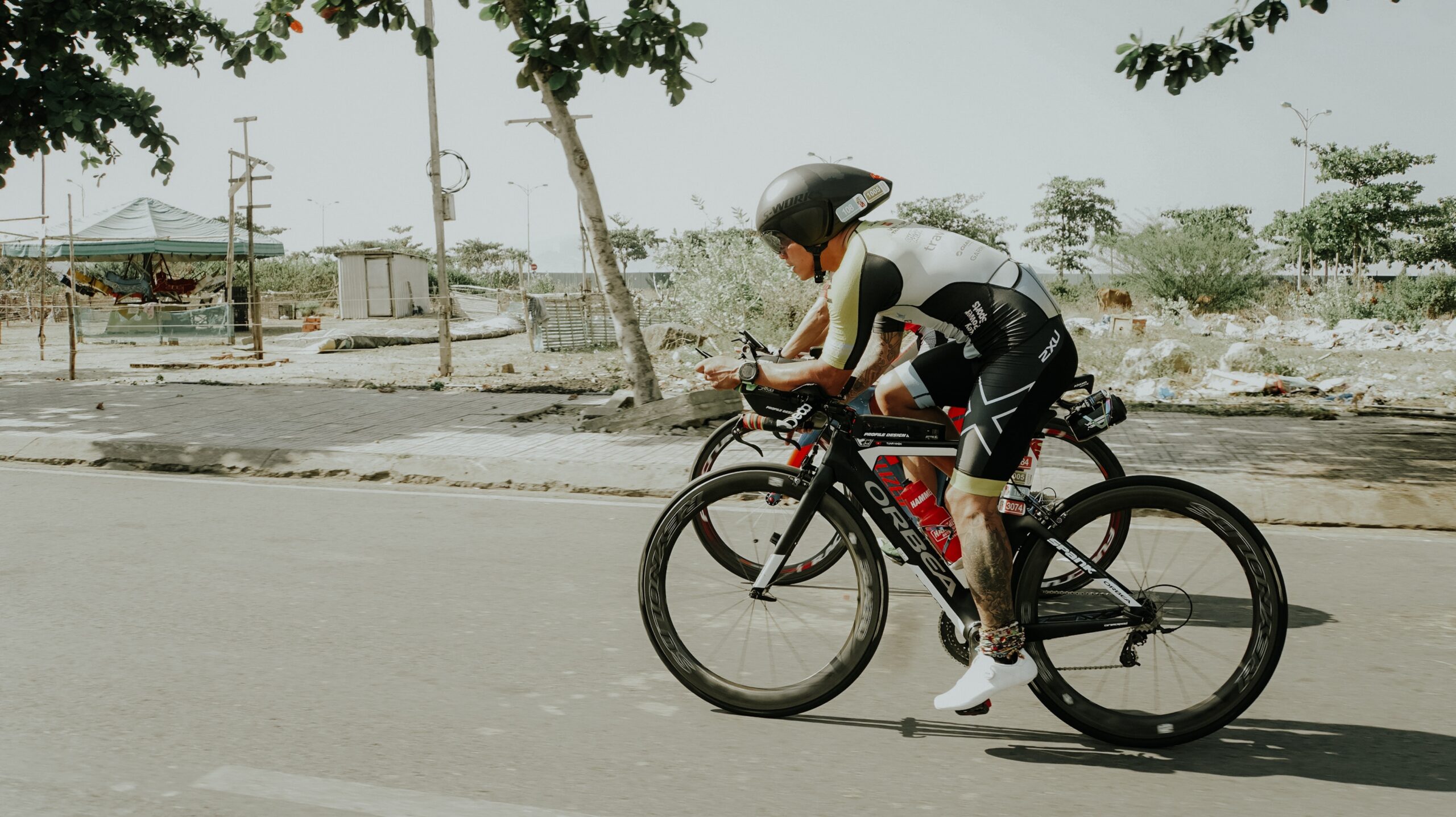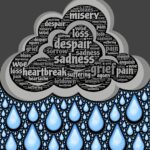One of the things I love most about being a triathlete is the range and intensity of emotions our sport evokes in me. Doing triathlons is like living life with the volume turned up. There is something about triathlon that peels away the layers of our emotions and causes us to feel them in their most raw and existential form.
Excitement, inspiration, passion, fun, and pride are the fuel that drives our triathlon engines. These emotions motivate us to train hard. They keep us going during races. And, of course, these “feel good” emotions are waiting at the finish line when we achieve your triathlon goals.
emotions motivate us to train hard. They keep us going during races. And, of course, these “feel good” emotions are waiting at the finish line when we achieve your triathlon goals.
At the same time, because triathlon is filled with so many challenges, both external (e.g., weather, course conditions, terrain) and internal (e.g., motivation, doubt, pain), triathlon also presents us with far less desirable emotions such as fear, frustration, disappointment, and despair. These feelings are decidedly “feel bad” emotions, yet they are also an unavoidable part of the triathlon life. Emotions are like two sides of the same coin; you can’t feel the good emotions unless you’re also willing to feel the unpleasant emotions.
 One of the most difficult aspects of the emotional side of triathlon is the emotional rollercoaster that also seems to be an inevitable part of our sport. You know the feelings; uplifting highs and crushing lows. We all love the emotional highs, though they tend to be relatively short-lived, though hopefully quite frequent. It’s the emotional lows that can feel so overwhelming and persistent. These down periods are usually experienced as low-grade feelings of malaise, lethargy, and sadness best described as “blah,” mixed in with more intense feelings of fear, frustration, and anger in reaction to scary situations and disappointing results. The emotional rollercoaster can cause you to feel as if you have Bipolar Disorder, though of a much milder and manageable variety compared to the paralyzing clinically diagnosable mental illness.
One of the most difficult aspects of the emotional side of triathlon is the emotional rollercoaster that also seems to be an inevitable part of our sport. You know the feelings; uplifting highs and crushing lows. We all love the emotional highs, though they tend to be relatively short-lived, though hopefully quite frequent. It’s the emotional lows that can feel so overwhelming and persistent. These down periods are usually experienced as low-grade feelings of malaise, lethargy, and sadness best described as “blah,” mixed in with more intense feelings of fear, frustration, and anger in reaction to scary situations and disappointing results. The emotional rollercoaster can cause you to feel as if you have Bipolar Disorder, though of a much milder and manageable variety compared to the paralyzing clinically diagnosable mental illness.
As you know well, the extreme nature of triathlon is such that it’s impossible to turn the emotional rollercoaster into a flat and straight train track. And you wouldn’t want that. At the same time, there are ways to prevent the frequency of the ups and downs, reduce the depth of the lows, and create a steadier emotional “ride” in your triathlon journey.
rollercoaster into a flat and straight train track. And you wouldn’t want that. At the same time, there are ways to prevent the frequency of the ups and downs, reduce the depth of the lows, and create a steadier emotional “ride” in your triathlon journey.
Causes of the Emotional Rollercoaster
Before you can get off your emotional rollercoaster, it helps to know why and how you get on it. The rollercoaster has several contributors that make the ride so unpredictable and often-times uncontrollable.
Life Outside of Triathlon
One thing that is important to remember is that when you get into the pool, onto your bike, or slip on your running shoes as a triathlete, you don’t leave you the person on the sidelines. What I’m saying is that whatever is happening in your non-triathlon life will impact your triathlon training and racing. As such, the responsibilities and demands of school, work, and relationships can cause your emotional rollercoaster to pick up speed. Distractions, worries, time pressures, and stress in your general life can bleed into your triathlon efforts taking its toll psychologically, emotionally, and physically. This toll can lead your emotional rollercoaster to pick up speed and take sharp and steep downward turns that drive your heart into your throat and create a pit in your stomach.
 In addition to these external demands that can accumulate and make the ride on your emotional rollercoaster feel overwhelming, internal challenges can also make your ride all the more unsettling. Low self-esteem, perfectionism, fear of failure, need for control, a pre-occupation with results, and self-imposed expectations and pressure are all qualities that can widen the amplitude of the emotional rollercoaster’s ups and downs. Moreover, in both my professional and personal experiences in our sport, these qualities are epidemic among triathletes. This means that most serious triathletes are already vulnerable to the emotional rollercoaster even before they begin training and racing.
In addition to these external demands that can accumulate and make the ride on your emotional rollercoaster feel overwhelming, internal challenges can also make your ride all the more unsettling. Low self-esteem, perfectionism, fear of failure, need for control, a pre-occupation with results, and self-imposed expectations and pressure are all qualities that can widen the amplitude of the emotional rollercoaster’s ups and downs. Moreover, in both my professional and personal experiences in our sport, these qualities are epidemic among triathletes. This means that most serious triathletes are already vulnerable to the emotional rollercoaster even before they begin training and racing.
Physical Demands
When most people think of emotions, they think of these ethereal experiences that they can feel intensely, but that can be difficult to wrap your arms around. However, the reality of emotions is that they are physiological occurrences that occur in the brain and body and that are impacted very directly by the physical demands that you place on your body from your triathlon efforts.
In fact, your emotions are one of the most accurate measures of how well you’re managing that delicate balance of intensity, volume, and recovery in your triathlon training. Because of this relationship, I have found that the primary cause of a wild ride on the emotional rollercoaster is overtraining and a lack of recovery. In other words, when your body shuts down physically, it also shuts down emotionally. When you feel emotions such as depression, sadness, malaise, and lethargy, your body is trying to tell you that you are doing too much. Your body may also be trying to tell you that it is tired, sick, or injured as well. If you are committed triathlete, you may want to ignore those messages which conflict with your notions of being tough, disciplined, and resilient. Yet, in the end, if you disregard those messages, your body will win this “battle” every time and your triathlon life will be the ultimate loser.
balance of intensity, volume, and recovery in your triathlon training. Because of this relationship, I have found that the primary cause of a wild ride on the emotional rollercoaster is overtraining and a lack of recovery. In other words, when your body shuts down physically, it also shuts down emotionally. When you feel emotions such as depression, sadness, malaise, and lethargy, your body is trying to tell you that you are doing too much. Your body may also be trying to tell you that it is tired, sick, or injured as well. If you are committed triathlete, you may want to ignore those messages which conflict with your notions of being tough, disciplined, and resilient. Yet, in the end, if you disregard those messages, your body will win this “battle” every time and your triathlon life will be the ultimate loser.
Preventing a Wild Ride
It’s always been my philosophy that the best way to deal with a problem is to prevent it from occurring. This approach applies well to the wild ride that the emotional rollercoaster can take you on. You can gain and maintain control of your emotional rollercoaster in three ways. First, look at the external aspects of your life outside of triathlon, identify areas that have accelerated your emotional rollercoaster in the past or see that happening in the future, and seek out ways to lessen their impact on you psychologically, emotionally, and physically. “Life hacks” related to time-demanding school or work, life balance, and conflictual relationships are just a few of ways you can reduce the severity of your emotional rollercoaster ride.
 Second, you can turn inward and identify aspects of your psychological life to understand how your thoughts, emotions, and behaviors can either put you on your emotional rollercoaster or increase its speed, drops, and curves. To prevent your emotional rollercoaster from getting out of control, addressing your internal life is obviously essential. Of far greater importance, when you understand and reduce the influence of unhealthy attitudes, beliefs, emotions, and behaviors on your life, you will be a much happier and healthier person (mentally and physically) which will indirectly help your triathlon life as well. There are many roads to Rome, as the saying goes, when it comes to exploring your internal life. You can read books, listen to podcasts, do retreats, meditate, talk to friends, or see a trained mental health professional. Which road you take is less important than taking any road.
Second, you can turn inward and identify aspects of your psychological life to understand how your thoughts, emotions, and behaviors can either put you on your emotional rollercoaster or increase its speed, drops, and curves. To prevent your emotional rollercoaster from getting out of control, addressing your internal life is obviously essential. Of far greater importance, when you understand and reduce the influence of unhealthy attitudes, beliefs, emotions, and behaviors on your life, you will be a much happier and healthier person (mentally and physically) which will indirectly help your triathlon life as well. There are many roads to Rome, as the saying goes, when it comes to exploring your internal life. You can read books, listen to podcasts, do retreats, meditate, talk to friends, or see a trained mental health professional. Which road you take is less important than taking any road.
Third, in focusing specifically on your triathlon life, there are practical steps you can take to keep your emotional rollercoaster in check. Slowing down the rollercoaster begins by developing and adhering to a sensible triathlon training program. Such a program balances volume, intensity, cross training, and periodization. Most importantly, it includes regularly scheduled rest and recovery which will help prevent your body from breaking down and leading to an out-of-control emotional rollercoaster. A structured program may also help you manage any obsessiveness or tendency to think that more is better that would push you to overdo it in your training (which would only ratchet up the speed of the rollercoaster). Other steps you can take include good sleep habits and healthy nutrition and fueling to counteract the persistent physical demands of an intense triathlon training program.
I think it’s also important to note that, however much your triathlon life is important to you, it shouldn’t be more important than other aspects of your life, in particular, school, work, or relationships (if it is, I suggest that you seek professional help). The reality of life is that sometimes you must make tough choices in what you prioritize and how you spend your time. Be sure you make decisions based on your healthiest needs and goals and the best interests of those you care about (even if that means backing away from triathlon for a while).
Responding to a Wild Ride
Despite your best efforts at keeping the reins on your emotional rollercoaster (apologies for the mixed metaphor), your life, both triathlon and beyond, may still get the better of you and create a wild emotional ride. Your goal when this happens is to slow your emotional rollercoaster as quickly as possible. I have two specific suggestions: look and listen. First, look at your life and identify what is causing the wild ride (it might be within or outside of your triathlon life).
Second, and very importantly, listen to your body. Our bodies are very good at letting us know when things aren’t going well inside; you have low energy, you feel achy, you’re feeling frustrated and melancholic. Our minds, unfortunately, aren’t always very good at hearing those messages, particularly when they conflict with your needs (e.g., being perfect, can’t be weak) and goals (e.g., “I need to train more for my upcoming ‘A’ race.”). Yet, as I noted above, your body will always win in the end, so it’s in your best interest to listen immediately and take action to slow your emotional rollercoaster down.
Conclusion
Here’s another likely reality: You’re probably never going to get off the triathlon emotional rollercoaster. In fact, even when it isn’t very pleasant or comfortable, you want to be able to go for that emotional ride. Gosh, it’s the intense emotions that are one of the biggest reasons we love triathlon. So, you don’t want to dismantle the emotional rollercoaster all together, but rather do your best to control the kind of ride you take. You can have three goals to aim for. First, keep the emotional descents less steep, less deep, and shorter in duration. Second, find a good length of track that is mostly flat with few sharp curves which would translate into a general state of happiness, enjoyment, and fulfillment in your triathlon life. Finally, and this is why we all do triathlon, allow the emotional highs to be higher, more frequent, and longer lasting.







